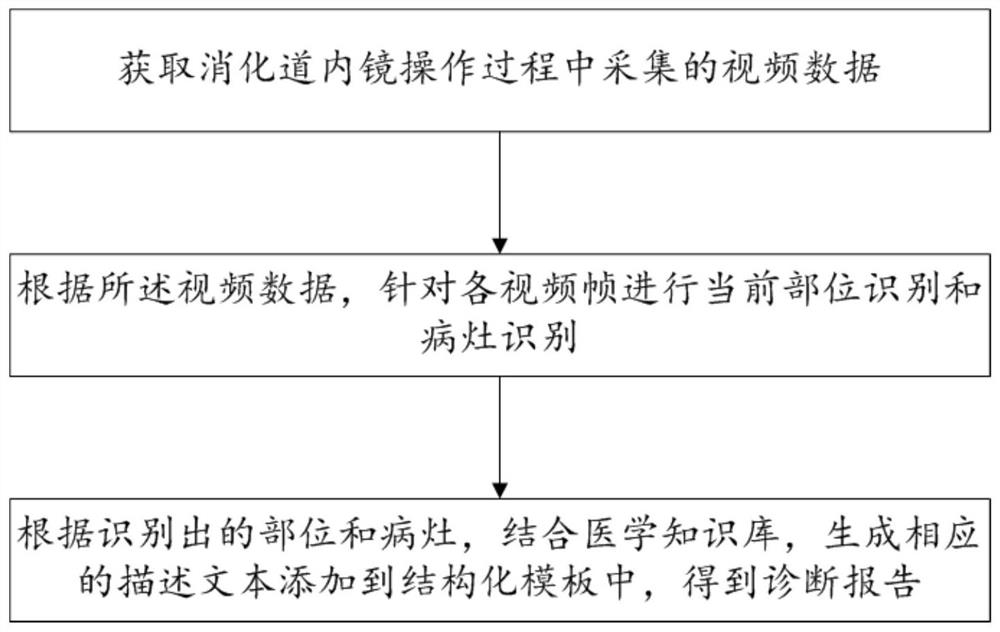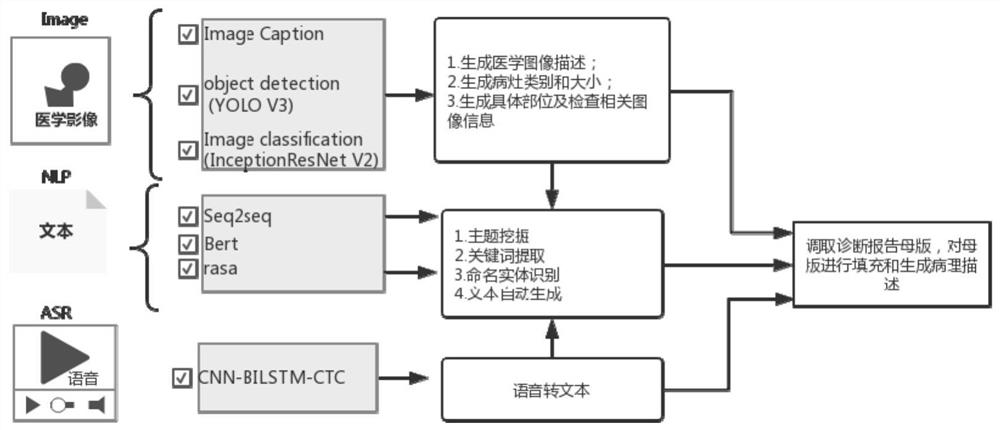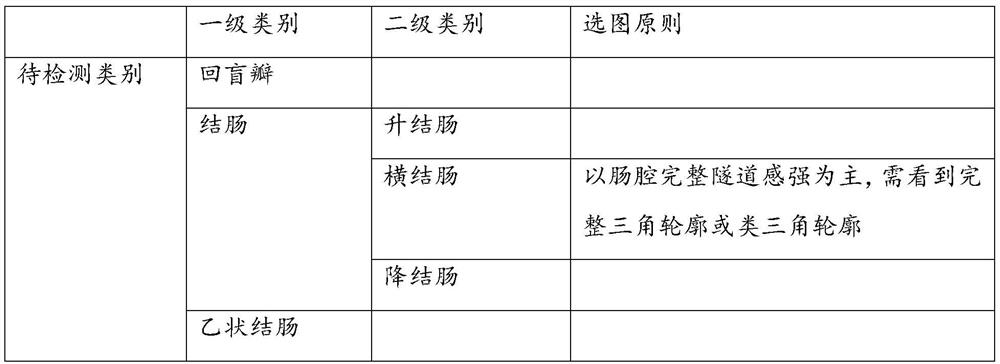Method and system for generating structured diagnosis report of digestive endoscopy based on image recognition
A diagnostic report and image recognition technology, applied in the field of artificial intelligence, can solve problems such as difficulty in realizing endoscopic description and diagnosis standardization, standardization, low efficiency, and time-consuming, so as to reduce writing workload, improve work efficiency, and The effect of medical services
- Summary
- Abstract
- Description
- Claims
- Application Information
AI Technical Summary
Problems solved by technology
Method used
Image
Examples
Embodiment 1
[0046] Such as figure 1 As shown, this embodiment discloses a method for generating a structured diagnostic report for digestive endoscopy based on image recognition, including the following steps:
[0047] Step 1: Obtain the video data collected during the gastrointestinal endoscopy operation, as well as the operator's voice data;
[0048] The above video data and voice data are all acquired during the operation of the endoscope, and are correlated through time.
[0049] Step 2: performing current part identification and lesion identification for each video frame according to the video data; performing voice recognition according to the voice data;
[0050] (1) The method for carrying out current part recognition to video frame comprises:
[0051] (1.1) Building a training set
[0052] Collect pictures of various parts of gastroscopy and colonoscopy, screen the images of digestive tract parts, mark the categories to be identified and identify the auxiliary categories of in...
specific Embodiment approach
[0067] As a specific implementation, the process of judging an image as a non-similar image is:
[0068] The hash sequence is generated by the mean hash algorithm and the Hamming distance is calculated. When the Hamming distance is greater than the set Hamming distance threshold, the image is judged as a non-similar image.
[0069] The similarity calculation logic generates a hash sequence through the mean hash algorithm and calculates the Hamming distance. When the Hamming distance is greater than the set threshold, the image is judged as a non-similar image. The relevant algorithms are as follows:
[0070] (a) Mean Hash Algorithm
[0071] Scaling: The picture is scaled to 8*8, the structure is preserved, and the details are removed.
[0072] Grayscale: convert to 256-level grayscale image.
[0073] Average: Calculate the average of all pixels in the grayscale image.
[0074] Comparison: if the pixel value is greater than the average value, it will be recorded as 1, other...
Embodiment 2
[0115] The purpose of this embodiment is to provide a system for generating a structured diagnostic report for digestive endoscopy based on image recognition, including:
[0116] The endoscopic image acquisition module acquires the video data collected during the digestive tract endoscopic operation;
[0117] The operator's voice acquisition module acquires the operator's voice data during the digestive tract endoscopy operation;
[0118] The current part recognition module, according to the video data, performs current part recognition for each video frame;
[0119] The lesion identification module performs focus identification for each video frame according to the video data;
[0120] The speech keyword recognition module recognizes the keywords related to medicine according to the speech data;
[0121] The structured report generation module, according to the identified parts and lesions, as well as keywords, combined with the medical knowledge base, generates correspondi...
PUM
 Login to View More
Login to View More Abstract
Description
Claims
Application Information
 Login to View More
Login to View More - R&D
- Intellectual Property
- Life Sciences
- Materials
- Tech Scout
- Unparalleled Data Quality
- Higher Quality Content
- 60% Fewer Hallucinations
Browse by: Latest US Patents, China's latest patents, Technical Efficacy Thesaurus, Application Domain, Technology Topic, Popular Technical Reports.
© 2025 PatSnap. All rights reserved.Legal|Privacy policy|Modern Slavery Act Transparency Statement|Sitemap|About US| Contact US: help@patsnap.com



